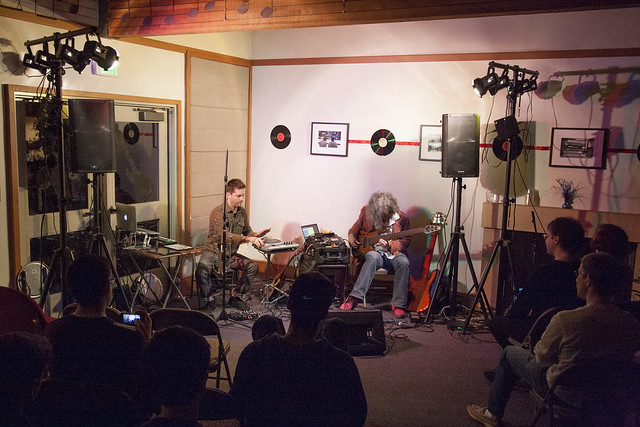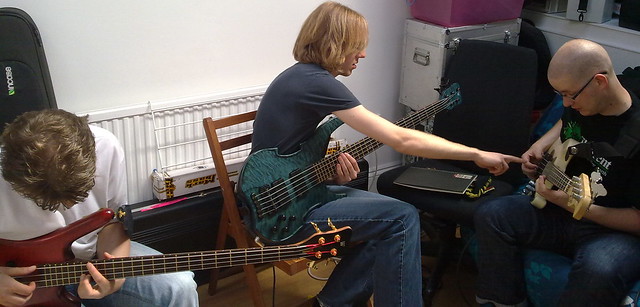Right! I’ve waited til the last minute to do this list cos it’s been such an amazing year for music, I half expected to find something released today to write about!
These aren’t in any kind of order – they’re all properly fabulous records that I suggest you check out and spend some money on if you dig them. They’re just separated out into Bandcamp albums and Google Play albums:
Sonar – Vortex (feat. David Torn) : I’ll buy pretty much anything that has David Torn on it, to be honest, but this time, the record would be in my year end best of whether he was here or not. Odd-time hypnotic grooves, exquisitely played, minimalistically evolving and layered with Torn’s wild guitar explorations. Just incredible.
Kristin Hersh – Possible Dust Clouds : Again, not a surprise that this is amazing, cos everything Kristin does is amazing, but Possible Dust Clouds gets even more unhinged than the last couple of albums. The mix is dizzying, the guitar/bass/drums are SO intense and the songwriting is extraordinary. Maybe my favourite thing Kristin has done in ages, and I’ve LOVED everything she’s ever done…
Phi Yaan-Zek – Reality Is My Plaything : A record I’ve been waiting for ever since I met Phi 4 or 5 years ago. Reality… had a 10 year gestation period, was recorded all over the world, and incorporated skills that Phi took time out to develop as he found a need for them. An amazing way to make a record, and it’s even more amazing just how coherent it is. It’s a HUGE amount of music, some amazing hooks, insanely complicated writing, but nothing that ever feels twiddly. A masterpiece.
Cuong Vu – Change In The Air : Everything Cuong Vu does is brilliant. I’m a huge, huge fan of his, particularly his earlier trio albums, but marrying his trumpet to Frisell’s guitar is an inspired pairing and has some of my favourite Frisell playing for YEARS on it. Just wonderful.
Liran Donin – 8 Songs : Liran has been bassist with Led Bib for years (I saw them play at the Vortex a decade ago) but on this, his solo debut, the writing and playing are so mature and developed. It’s a deep album, full of great improv, amazing bass playing and killer tunes. British jazz is absolutely overflowing with massive talent right now, and this is at the top of the shop.
Dinosaur – Wonder Trail : speaking of British jazz, Dinosaur are another example of just how exciting the scene is right now. Post-Miles electric jazz, amazing playing (bassist Conor Chaplin is just incredible here) and Laura’s killer writing. Properly brilliant.
Echotest – Daughter Of Ocean : the first of two pre-releases here (out properly TOMORROW!) – Julie Slick and Marco Machera just get better and better. The writing, arranging, recording and playing are all progtastic, hummable and grooving, and Marco’s beautiful voice just gets better and better. Will be playing this a lot throughout the coming year.
Andrew Howie – Micronations : I subscribed to Andrew this year, and he’s released SO many great recordings, many of them remasters of albums I already loved. This new one is a beautiful experiment in downbeat electropop. It really doesn’t matter what Andrew turns his hand to, it always turns out incredible. I’m a MASSIVE fan.
Artemis – Of This Dirt : Artemis actually asked me to record some stuff for this album years ago, but I took WAY too long to get round to it, and by then it didn’t fit at all. But, it doesn’t miss me at all – the record hangs together as such a gorgeous suite of songs. Like the Andrew Howie album above, it’s the sound of grown-ups making electronic music. All that wisdom and experience wrapped around a deeply current aesthetic. Magical.
Sam Phillips – World On Sticks : Another great Sam Phillips album that sounds like a great Sam Phillips album. No surprises, but who would want them? She sounds utterly like herself and tells her beautiful stories in a way that everyone should hear.
Gretchen Peters – Dancing With The Beast : talking of songwriters who tell amazing stories, Gretchen goes from strength to strength, telling rich and moving stories of growing older, of resistance, of troubles and trials. The opening track rips my heart open. So, so beautiful.
Aaron Gibson – Horror Films And Sunday School : another pre-release released TOMORROW, this album is one of the finest things ever recorded by a bass playing singer/songwriter. The strings are exquisite, Aaron’s playing, singing and writing are all exemplary, and it’s also the only album in the list that I played on (I take a solo on one track). Just incredible.
The Midnight Hour – The Midnight Hour : I spent a lot of time this year listening to hip hop. Much of it was older Tribe Called Quest/Eric B and Rakim/Dilla/Slum Village/De La Soul stuff, but there was also this incredible crossover jazz/soul/hip hop record by Adrian Younge with Ali Shaheed Muhammed. I found them via the Luke Cage S2 soundtrack (below), and foudn this soon after. An incredible level of skill and soul at work here.
Field Music – Open Here : the last Bandcamp album on my list, but one of the best pop albums I’ve heard in decades. Everything about Field Music is incredible, and Count It Up is possibly my track of the year. They were also one of my gigs of the year, opening for The The in Birmingham. Joyful awesomeness.
And then there were these fantastic albums not on Bandcamp, that I bought on Google Play. Every one of them is amazing:
Sweet Billy Pilgrim – Wapentak
John Coltrane – Both Directions At Once
Adrian Younge/Ali Shaheed Muhammed – Luke Cage Season 2 soundtrack
Black Thought – Streams Of Thought Vol. 1
Anderson Paak – Unreleased

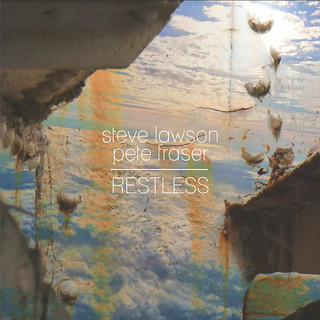 I’ve just put out a new album! It’s called
I’ve just put out a new album! It’s called 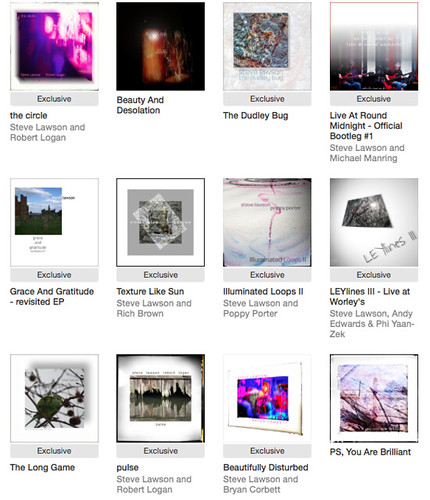
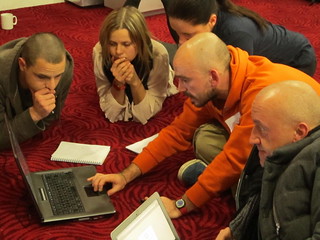 An awful lot of music courses these days have group-based practical projects as at least one module within the course. This is, I think, a positive trend, in that it encourages you situate your learning within the context of your own practice as creative professionals, but it definitely requires some thought regarding how to organise yourselves in a group. So here are a few thoughts on how to do that:
An awful lot of music courses these days have group-based practical projects as at least one module within the course. This is, I think, a positive trend, in that it encourages you situate your learning within the context of your own practice as creative professionals, but it definitely requires some thought regarding how to organise yourselves in a group. So here are a few thoughts on how to do that: